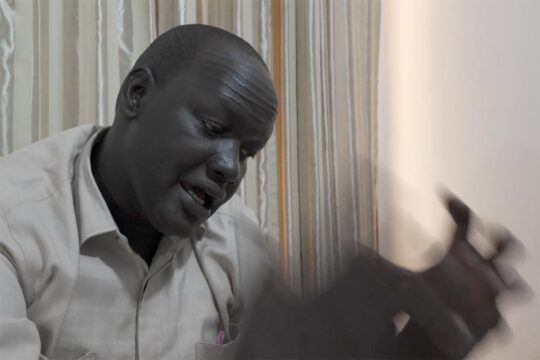A fragile ceasefire appeared to hold in South Sudan's capital Juba after four days of gun battles that have left several hundred people people dead and sent nearly 40,000 fleeing.
It was too early to tell on Tuesday whether the ceasefire, called by both President Salva Kiir and his opponent Vice President Riek Machar, would last but the lull allowed civilians to leave their homes.
There were no helicopter gunships in the sky, no tanks on the streets, no artillery barrages and soldiers in their machine gun-mounted pick-up trucks appeared to have stayed in their barracks.
The calm was welcomed by Juba residents who have stayed mostly indoors for days.
"The situation is quiet near the airport," said August Mayai, a local resident. "There are people in the streets."
The fighting began in earnest on Friday evening -- killing over 300 soldiers that day alone according to government estimates -- then paused on Saturday, the country's fifth anniversary of independence, before resuming with intense fighting on Sunday.
There has been no estimate of casualties from Sunday and Monday's fighting.
The violence has raised fears of a return to civil war that broke out in December 2013 and has been characterised by ethnic massacres, rape, murder and the use of child soldiers.
An August 2015 peace deal was supposed to end the conflict but has so far failed to do so, despite the return of rebel leader Machar in April to join a government of national unity alongside his enemy Kiir.
- Ceasefire, but for how long? -
On Monday evening Kiir and then Machar both ordered ceasefires after a chorus of condemnation from the United Nations, regional bloc IGAD, the United States and others.
"The United States condemns in the strongest terms the return to violence in South Sudan. It must stop," National Security Advisor Susan Rice said in a statement hours after the ceasefire took effect.
Despite the pause in fighting Juba remains on tenterhooks.
"We are on the lookout because anything can happen," said one resident who did not want to be named. "We've had the same situation before: we thought it was going to be fine, and it wasn't."
Rashid Abdi, an analyst at the International Crisis Group think tank in Nairobi shared that scepticism. "Any cessation of fighting activities, even for a day, is welcome. But whether the ceasefire will hold is another discussion," he said.
The impact of the days of violence on an already weak and scarcely implemented peace deal remains to be seen.
At least 36,000 have fled their homes in Juba since Friday, according to UN figures, with many heading for the presumed refuge of United Nations' bases.
But even there they were not safe with the UN saying eight people were killed and 67 injured at so-called "Protection of Civilian" sites since Sunday.
Two Chinese peacekeepers were also killed and others wounded.
International flights to Juba's international airport were still suspended on Tuesday morning and foreign governments' advisories that their citizens stay indoors remained in place.
South Sudan has seen more fighting than peace since independence in July 2011. The August 2015 peace deal was supposed to end the conflict but fighting has continued.
Tens of thousands have died in the violence, with close to three million forced from their homes and nearly five million surviving on emergency food rations.
The humanitarian crisis has unfolded alongside an economic one with the currency collapsing and inflation spiralling out of control. The country's mainstay oil industry is in tatters and regional towns have been razed.



